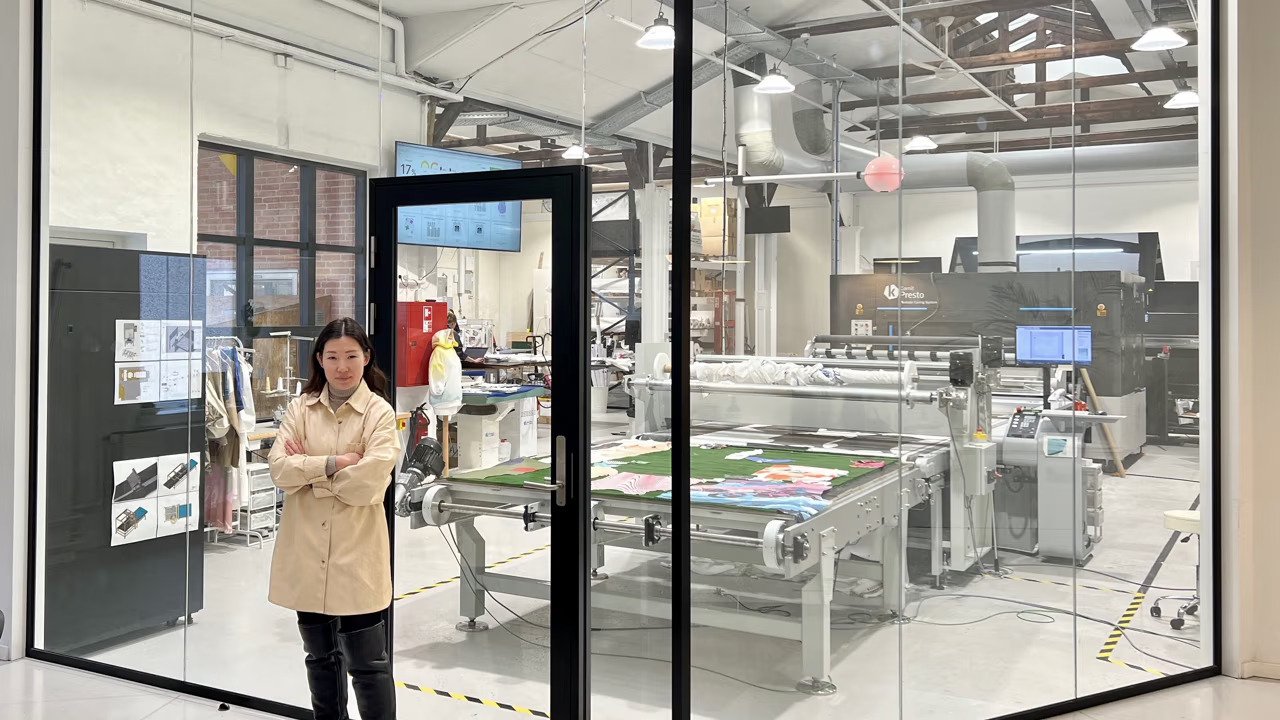Today Danish startup Rodinia Generation announced it has raised €3 million Seed funding.
Rodinia Generation is a Danish tech startup that introduces high-tech software and hardware to the fashion industry to combat garment overproduction and make manufacturing processes more sustainable and efficient.
Traditionally fashion companies send designs to low-cost manufacturing countries, where they are mass-produced, using vast amounts of water, toxic chemicals and dyes, without knowing if the garment will ever sell. Furthermore, manufacturers are incentivised to overproduce because unit costs are low but shipping is slow.
Production processes are low-tech and, although continuously improving, have remained principally the same since the invention of the power loom during the Industrial Revolution.
Founded by designer Trine Young in 2017, Rodinia runs a network of automated microfactories that make clothes exactly when needed, near the customer, and only in the amounts people buy. Its proprietary software collects and processes production data from its microfactories, allowing the fashion industry to improve its efficiency, reduce costs and provide transparent impact reporting.the company's first microfactory has been running successfully in Copenhagen since 2021.
Rodinia supplies several leading fashion businesses, including sportswear brand Hummel, Mads Nørgaard Copenhagen and children's clothing brand Wheat.
"It should be possible only to make clothes when they are actually bought, without having to transport them from one end of the planet to the other while causing all sorts of damage to people and the environment along the way," says Rodinia's founder and CEO Trine Young.
Rodinia addresses the most polluting processes within the fashion supply chain: dyeing and finishing, i.e. how colour and other chemicals are applied to fabric, and manufacturing, i.e. the actual sewing of garments.
Microfactories make product-to-market time 19x faster
Using microfactories, garment designs can be produced in less than two weeks, even in as little as 48 hours, eliminating the need to overproduce to ensure supply – thereby helping reduce the nearly 50 billion unsold garments annually, which costs the fashion and textiles industry €188 billion.
"Today, it takes nine months from design to sale. With our microfactories, we can shorten the production process, allowing clothing brands to quickly adapt their products to trends - and potentially even sell them before they are manufactured," says Trine Young.
Starting in Europe, then the US, Rodinia's ambition is to establish a worldwide network of microfactories that produces garments for international high street and luxury brands with a strong environmental awareness.
Today's funding comes from The Danish Export and Investment Fund (EIFO) and Climentum Capital investment.
According to Rünno Allikivi, Investment Manager in EIFO's Green Transition investment team:
"We are investing in Rodinia because EIFO's ambition is to support companies that can make a difference.
Rodinia makes it possible to reduce the overproduction of clothing, thereby saving a lot of resources and reducing greenhouse gas emissions. Its technology reduces water and chemical consumption and eliminates the need for long-distance transport. This is not only beneficial for the climate, but also good for business."
"As an Article 9 fund, we were impressed with Rodinia's ability to transparently collect and process data from production units at different geographical locations. The fashion industry will benefit from this highly efficient low-volume-enabling production system and will find having impact data invaluable as environmental regulations expand," adds Stefan Maard, General Partner at Climentum Capital.
Lead image: Rodinia Generation Founder and CEO Trine Young at the Copenhagen microfactory. Photo: uncredited.



Would you like to write the first comment?
Login to post comments